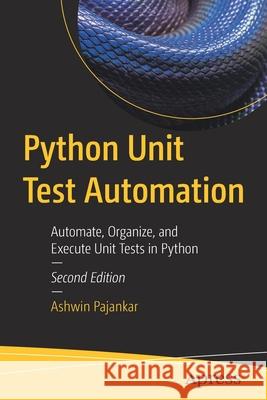Python Unit Test Automation: Automate, Organize, and Execute Unit Tests in Python » książka
topmenu
Python Unit Test Automation: Automate, Organize, and Execute Unit Tests in Python
ISBN-13: 9781484278536 / Angielski / Miękka / 2021 / 232 str.
Kategorie:
Kategorie BISAC:
Wydawca:
APress
Język:
Angielski
ISBN-13:
9781484278536
Rok wydania:
2021
Ilość stron:
232
Waga:
0.33 kg
Wymiary:
23.39 x 15.6 x 1.24
Oprawa:
Miękka
Wolumenów:
01
Dodatkowe informacje:
Wydanie ilustrowane











